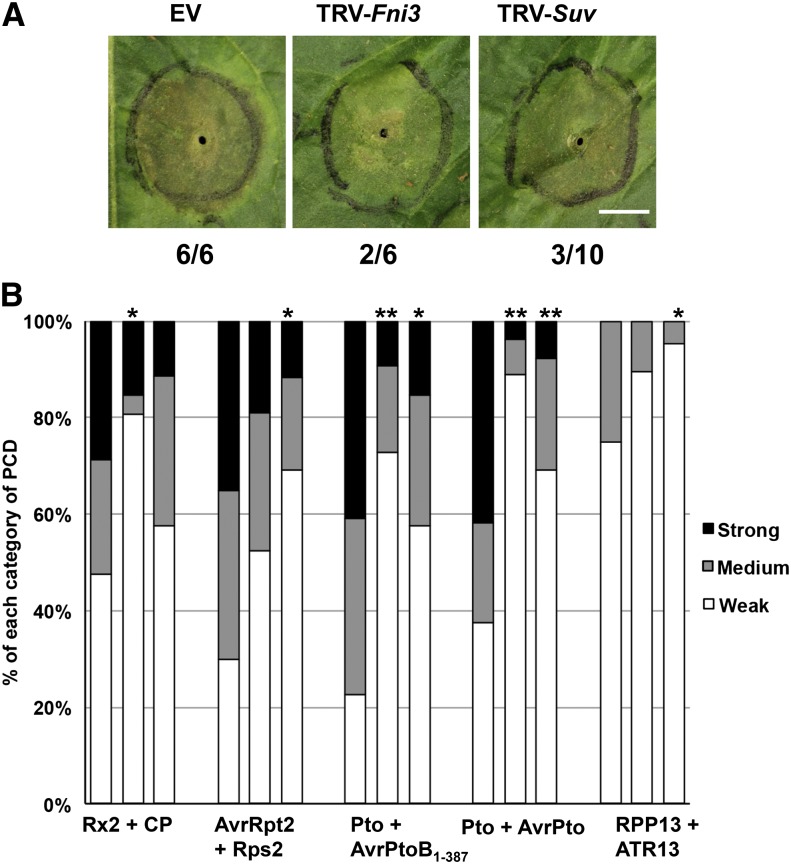Figure 6.
Silencing of Fni3 or Suv Reduces Immunity-Associated PCD Induced by Other R Protein/Effector Pairs.
(A) Immunity-associated PCD triggered by the nonhost bacterial pathogen Pst DC3000 in N. benthamiana. A suspension of 5 × 106 colony-forming units/mL of Pst strain DC3000 was infiltrated into the outlined area of N. benthamiana leaves where either Fni3 or Suv has been silenced. The photographs were taken 3 d after inoculation. The numbers below the images denote number of infiltrated areas that showed strong PCD and the total number of infiltrated areas. This experiment was repeated two times with similar results. Bar = 1 cm.
(B) Effect of silencing Fni3 on PCD caused by Agrobacterium-mediated transient expression of other R protein/effector. The degree of PCD induced by other R protein/effector interactions on Fni3- or Suv-silenced N. benthamiana plants was visually measured and statistically analyzed using Fisher’s exact test as described in Figure 5B. Asterisks (*P < 0.05 and **P < 0.01) indicate significant reduction of PCD by silencing either Fni3 (second lane of each PCD elicitor) or Suv (third lane of each PCD elicitor) compared with PCD in TRV-only plants (first lane of each PCD elicitor). The results are the sum of at least five independent experiments in which at least 20 infiltrations for each PCD elicitor were conducted on TRV-only, TRV-Fni3, and TRV-Suv plants, respectively.

